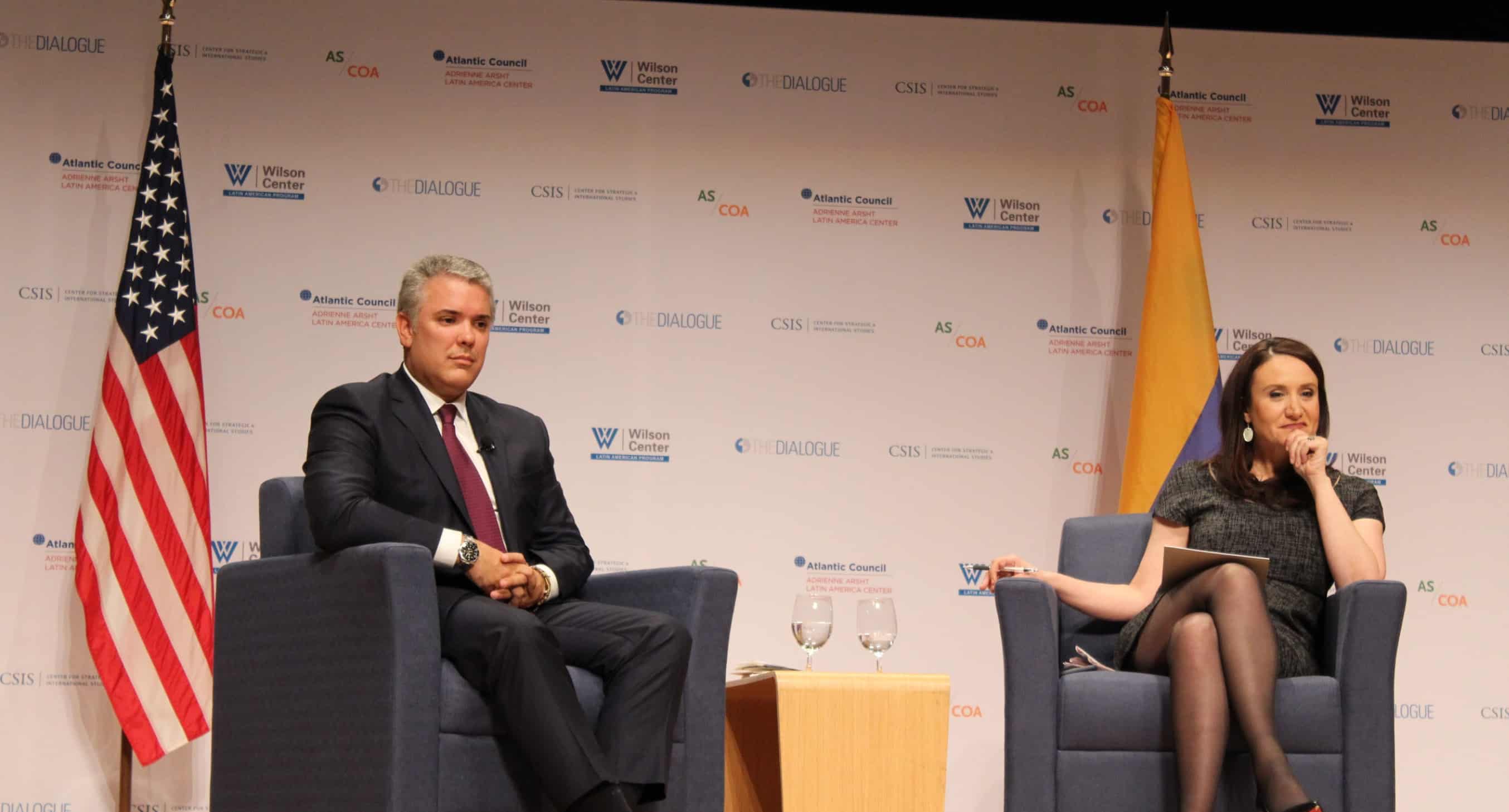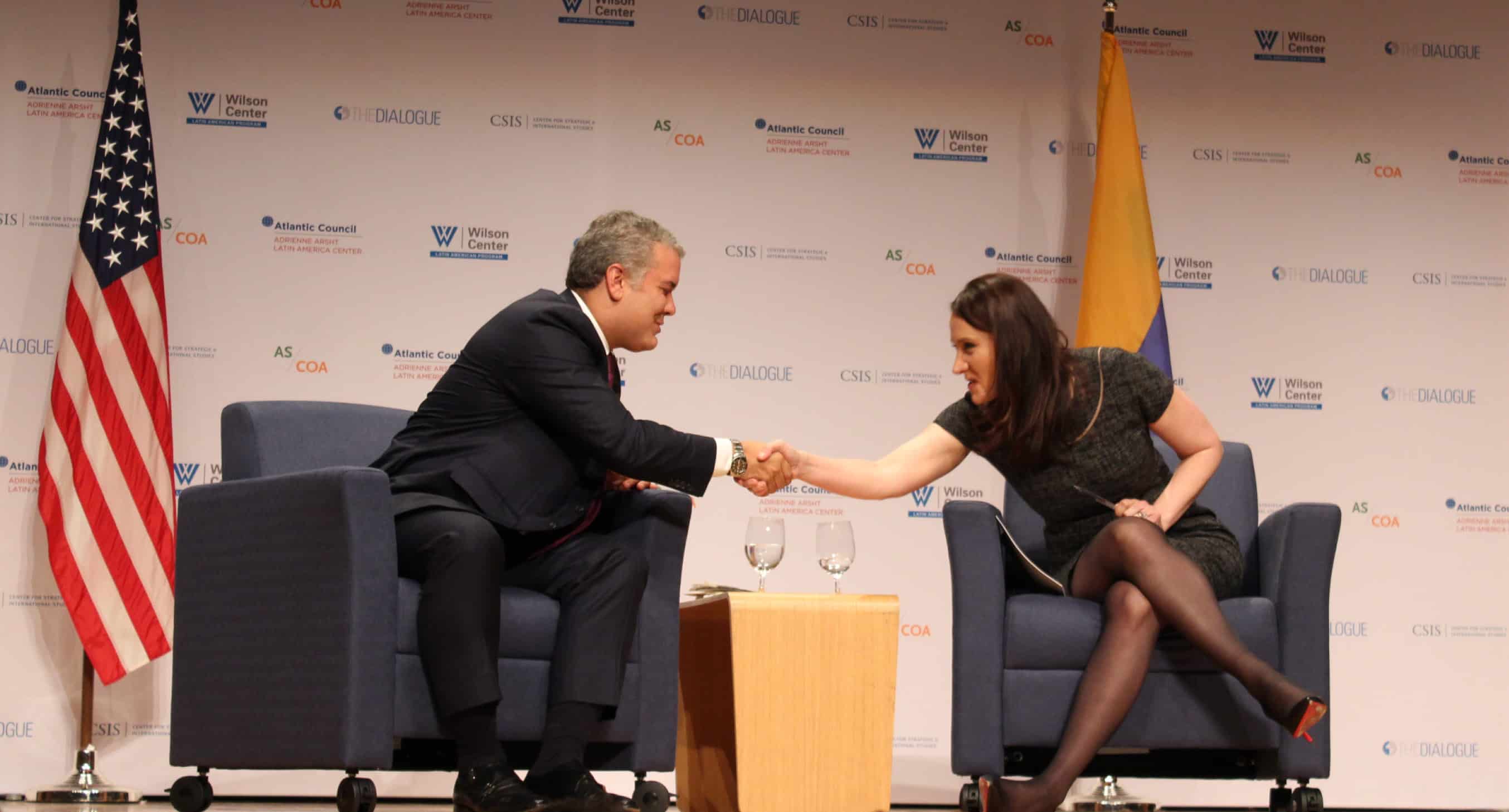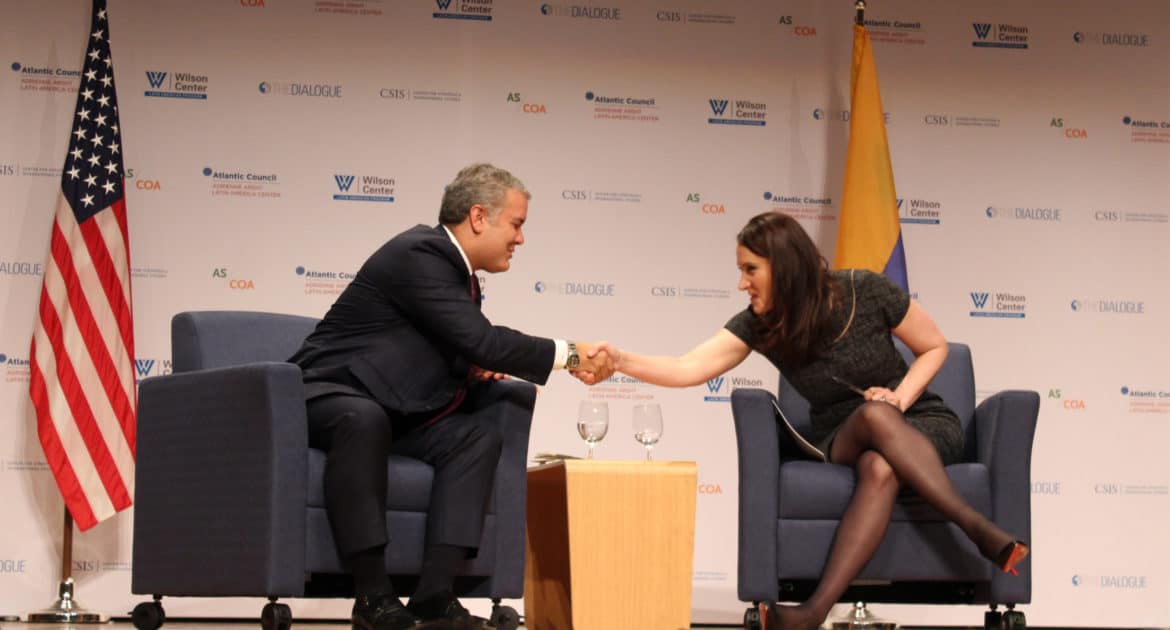
On February 14th, President Ivan Duque Marquez of Colombia came to the Ronald Reagan Building and International Trade Center to discuss Colombia’s agenda and the main goals of his administration with Michelle Caruso-Cabrera American business news reporter for CNBC, as the moderator. An event coordinated by the Woodrow Wilson Center for International Scholars, the Amphitheater quickly filled up with over 600 attendees eager to hear from President Duque.
Some of the main topics he touched on included the regional response to the humanitarian and political crisis in Venezuela, the drug problems facing Colombia, and crime and terrorism:
Venezuela:
Venezuela is currently experiencing hyperinflation, which has resulted in severe shortages of food and medicine. As conditions continue to worsen, Venezuelans are fleeing to neighboring countries, such as Colombia, in dire need of food and medicine. These countries are now facing added infrastructure pressure that come with an increase in population over a short span of time. Even though these countries are overextended with resources, as President Duque spoke on the matter, he strongly asserted that “blockading international aid and humanitarian aid is a crime against humanity… there are people dying of hunger and searching for hope in Venezuela.” He also believes that the Venezuelan people, “are seeing a light at the end of the tunnel and it is up to us to continue strengthening the diplomatic blockade and making a clear request to the Venezuelan members of the military so that they no longer pay loyalty to (Nicolás) Maduro. They recognize that the only legitimate power is in the National Assembly and that they recognize Juan Guaidó as President of Venezuela. So I think this is the moment to put an end to the most brutal dictatorship we have seen in years in Latin America.”
Drug Problems:
According to the Colombia Data Reports, 4% of the world’s population has consumed cocaine in his or her life, which is an estimate of 300 million people. Approximately half of that cocaine comes from Colombia. When pressed on the topic, President Duque recognized that this is a huge issue in Colombia and believes that “facing the matter of drugs is a discussion about health. We have people selling drugs to kids on the playground. We have to make a shift from illegal economies to legal economies… having the possibility for the growers to have sustainable income based on new legal crops.”

Crime and Terrorism:
On January 17, 2019 a car bombing killed 21 people in Bogota, Colombia. This bombing was an unpleasant reminder of how Bogota used to be when drug lords wreaked havoc on the capital’s streets, killing hundreds of civilians at a time. Speaking on the topic, President Duque stated “no ideology justifies a killing, a kidnapping or an act of brutality as the one we saw on January 17 and I think that is the moral stand that I will always make with honor is that no longer can terrorism be used as a way of expressing political ideas. Terrorism is a modern threat and we have to defeat it. We will always prevail because we have a strong judicial system and a strong military to face this threat.”
As the event concluded, President Duque expressed his appreciation for DC and exited with a large applause from the audience. We look forward to seeing the progress and impact President Duque will make on Colombia in the next few years. To join the conversation, use the hashtag #DuqueDC on Twitter.
For more from President Duque's visit to DC, check out a write up from the Woodrow Wilson Center.


